| |
If you cannot view this e-mail correctly, please click here. |
|
| |

|
|
|
News from CEA´s European Projects
|
November, 27th 2017 |
|

|
03
|
|
|
|
|
| |
|
|
|
|
| |
|

|
|
Summary
|

|
|
|
|
| |
|

|
NAIADES: Na-ion could be the new Li-ion king of batteries
|

|

|
MOS-QUITO: first brick for quantum spintronics
|

|

|
EUNCL facilities support nanomedicine development in Europe
|

|

|
EuroBioTox: building first-response capacity to bioterrorism
|

|

|
High performance computing for energies with EoCoE
|
|
|
|
| |
|
|
|
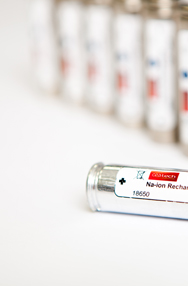
|
|
|
NAIADES: Na-ion could be the new Li-ion king of batteries
|

|
H2020 project NAIADES proposes to develop a new generation of battery based on the sodium ion technology aiming for a drastic cost reduction compared to traditional lithium-ion technology for stationary Electric Energy Storage (EES) application.
When intermittent renewable energy sources, such as wind, sun and waves, are widespread and used in the power grid, production of efficient and inexpensive energy storage systems becomes unavoidable. Thus, the expansion of battery technology for large scale energy storage is very relevant. (...)
|

|
|
|
|
|
|
|
|
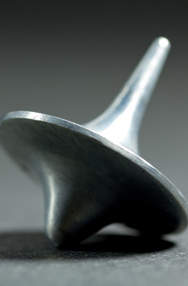
|
|
|
MOS-QUITO: first brick for quantum spintronics
|

|
Encoding information in the spin of a single electron, or hole, using proven microelectronic technology is the first objective of the European project MOS-QUITO. Thanks to the production of a dual-gate silicon MOS transistor, allowing for the initialisation, manipulation and reading of the spin of a hole using two quantum dots in series, MOS-QUITO paved the way towards large-scale integration of quantum bits.
The promises of quantum computation rely on quantum bits (also called qubits) and their ground-breaking potential—yet to this day, (...)
|

|
|
|
|
|
|
|
|
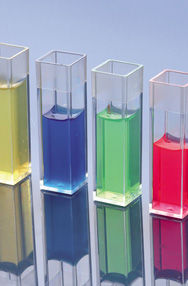
|
|
|
EUNCL facilities support nanomedicine development in Europe
|

|
The European project EUNCL is dedicated to perform and standardize pre-clinical characterization of nanomaterials for medical applications funded under Horizon 2020 Framework Programme. EUNCL’s characterisation platform aims to assess all categories of nanomedicines developed in EU, aligned with the need of regulators to get improved analytical methods. EUNCL also serves as a European knowledge base for researchers and industry ensuring that this knowledge is documented in Europe for the benefit of the European economy, healthcare systems and patients.
Nanomedicine covers all medical applications of nanotechnology (...)
|

|
|
|
|
|
|
|
|
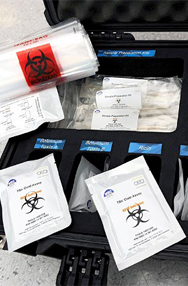
|
|
|
EuroBioTox: building first-response capacity to bioterrorism
|

|
Considering the lack of robustness in European preparedness for biotoxin incidents, potentially occurring from bioterrorism action, the European Union entrusted the new European project EuroBioTox to develop and validate improved analytical tools, reagents and standard operating procedures based on realistic incident scenarios. The project, which started up in June 2017 for five years, benefits from the CEA expertise in immunoanalysis and mass spectrometry.
Bacterial toxins are resistant in water and air and therefore can be effectively dispersed as bioterrorist attack agents. Many of these (...)
|

|
|
|
|
|
|
|
|
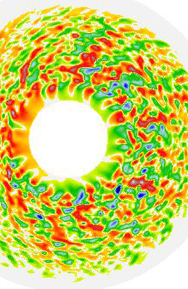
|
|
|
High performance computing for energies with EoCoE
|

|
Predicting wind and sunlight intensity or stabilizing plasma in a nuclear fusion reactor are some of the multiple challenges to tackle in order to diversify our energy mix. They rely heavily on high performance computing (HPC). Situated at the crossroads of HPC and energy transition, the European Energy-Oriented Center of Excellence, or EoCoE, intends to provide high-end expertise in applied mathematics and HPC.
Computer simulation being an amazing driver of innovation, it is strategic for Europe to develop supercomputing resources at the most (...)
|

|
|
|
|
|
|
|
|
|
| |
|
|
|
|
| |

|
|
|

|
|
The French Alternative Energies and Atomic Energy Commission (CEA) is a public research organization working in four main areas: defense and security, nuclear and renewable energies, technological research for industry and fundamental research. Building on its recognized expertise, the CEA takes part in implementing cooperation projects with a wide range of academic and industrial partners. With its 16,000 researchers and employees, it is a major player in European research and is also expanding its international presence. More information: www.cea.fr/english
|
|
|

|
|
|
| |

|

|
|
|
|
Contact
|

|
Guillaume Milot, Press officer
T. +33(0)1 64 50 14 88 | guillaume.milot@cea.fr
Commissariat à l'énergie atomique et aux énergies alternatives Centre de Saclay | Bâtiment Siège 447
91191 Gif-sur-Yvette Cedex - France
|
|
|
|
More
|

|
|
|
|
|
|

|
|
|
| |
|
|